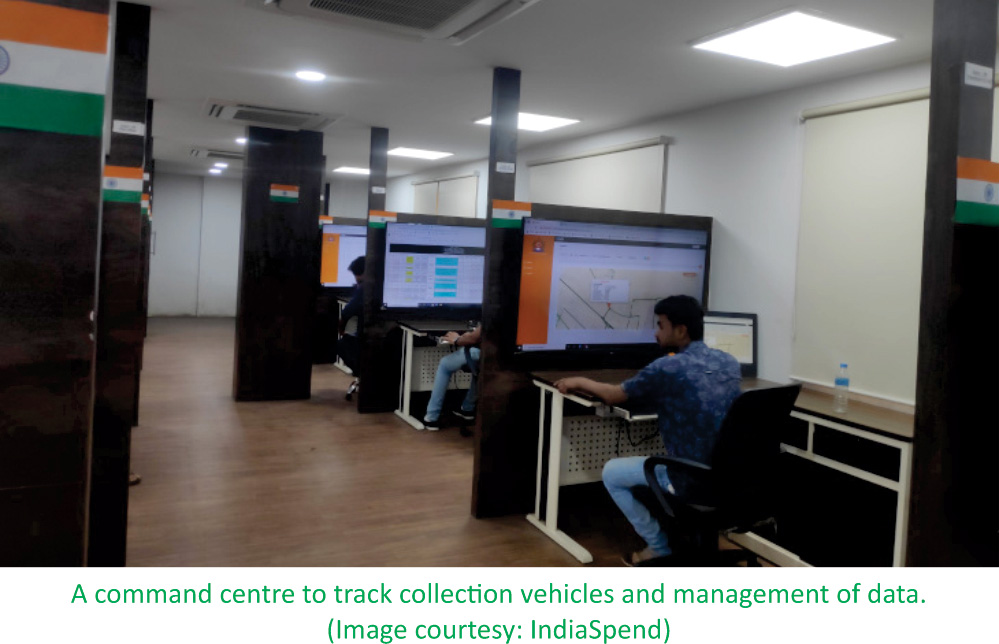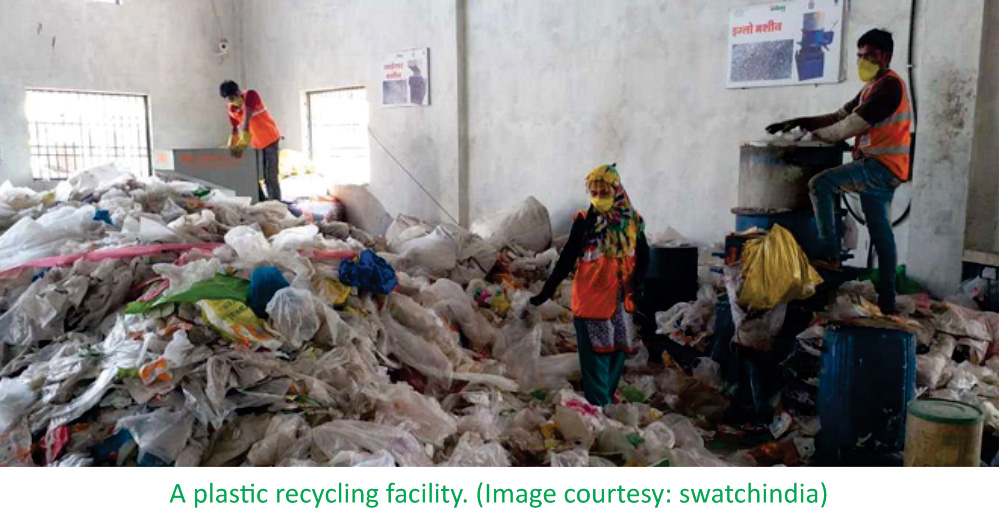|
Swachhta Lessons from Indore, Indian’s cleanest city
A
few years ago, the city of Indore was choking on its plastic waste.
Almost all the plastic waste it generated used to be disposed of by open
burning. It was in 2016 that the city started waste management
revolution of its own kind. It follows decentralised waste management
approach with an aim to make recycling, reusing and disposing of the
waste faster and highly organised. The Indore Municipal Corporation (IMC)
has involved every stakeholder – citizens, NGOs, activists, self-help
groups and authorities – in the cause.
The city’s solid waste management system is based on 4R: Reduce,
Recycle, Reuse and Recover, with source segregation being the main
component. The city has moved to six-bin segregation of waste at source
or the household/commercial place level. There are separate bins for dry
waste, wet waste, plastic waste, e-waste, domestic sanitary waste, and
domestic hazardous waste. There is a separate facility for plastic waste
collection leading to reduction in the overall cost of the process. Rag
pickers are incentivised to segregate recycled plastic. The remaining
plastic waste is taken to the plastic collection centres where it goes
through the process of shredding and purification with the help of
plastic cleaning machines, known locally as a ‘Phatka’ machines. After
shredding the waste, chips are bundled into 100 kg blocks that are sent
to cement plants, where they are used as fuel for boilers. A fraction of
this shredded and purified plastic is also sent to the Madhya Pradesh
Rural Road Development Authority for road construction.
Indore has been taking many initiatives for increase public awareness on
cutting down the use of plastics. The NGOs involved in the segregation
process have been instrumental in teaching people ways to segregate
waste and are in the process of spreading the values of cleanliness
among the citizens. Under one such initiative, all the households are
given two large bags for them to store plastic waste separately. When
these are filled up, people send a message to the agency appointed for
recycling the plastic waste, which sends its personnel to the household
to buy the plastic depending upon its quality and quantity. Moreover,
‘Bartan Banks’ have come up in the city since 2019 which provide steel
cutlery free of cost to people in order to discourage the use of
single-use disposables. It has also been running ‘Jhola Banks’ to
provide recycled cloth bags made by women’s self-help groups in support
of the ban on single-use plastic bags.
The municipal corporation has also launched a mobile application,
‘Swachhta App’, to keep an online record of all of its solid waste
management. It is accessible to both citizens and IMC employees who can
contribute to improve it. Citizens will be able to raise complaints,
track movement of garbage collection vehicles in their respective areas
and the IMC, through an online platform, would be able to keep track of
all waste collection, transportation and processing data.
From being labelled as the biggest plastic waste generator in Madhya
Pradesh in 2013 to being adjudged the cleanest city in the country three
times in a row by the central government’s Swachhta Sarvekshan, Indore
is a shining example to other big cities in India grappling with waste
management woes.■


References
Anshul Tyagi
atyagi@devalt.org
Back to Contents
|

